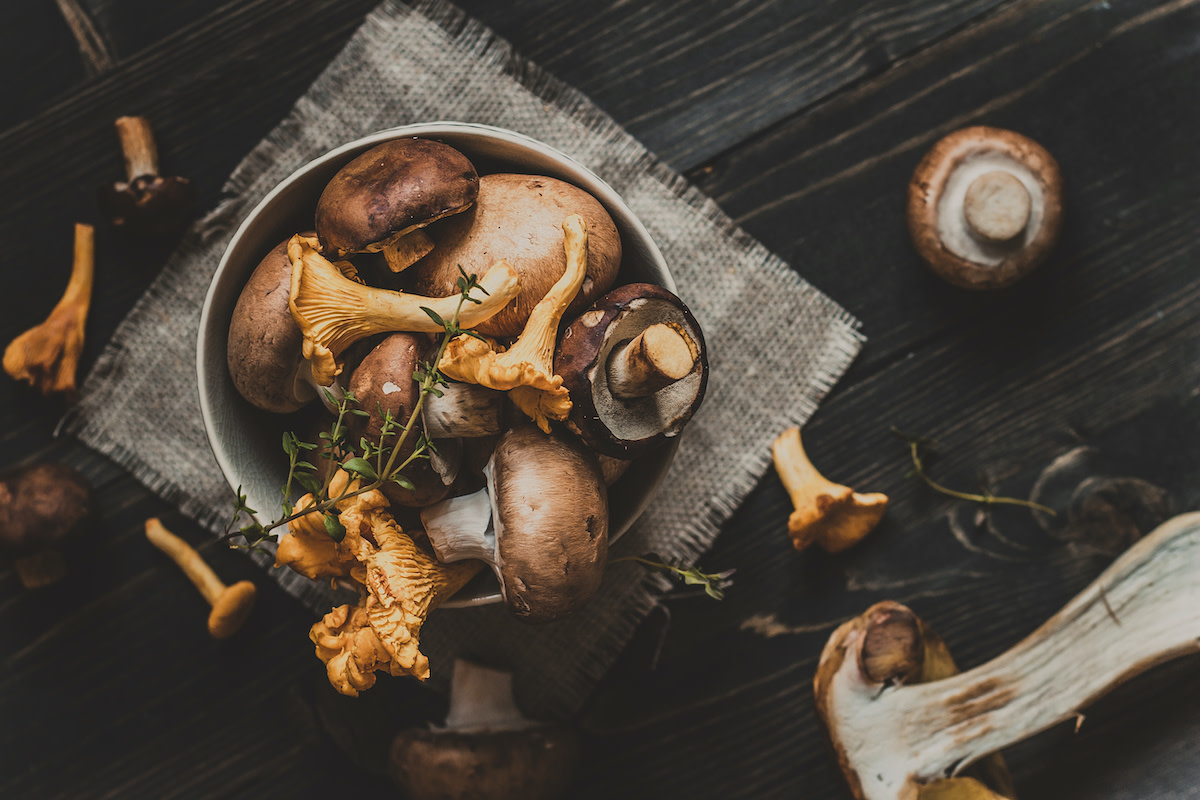How to Store Mushrooms to Maximize Their Freshness
Written by MasterClass
Last updated: Aug 24, 2021 • 3 min read
Mushrooms make a tasty addition to a number of dishes, from pasta and risotto to meat roasts and even savory pastries. Since these meaty veggies are high in water content, they tend to get slimy and spoil quickly. Properly storing your mushrooms can maximize their usability and keep them fresh.
Learn From the Best
What Are Mushrooms?
Mushrooms belong to the fungi kingdom that is separate from plants and animals. They regenerate on their own through the germination of their spores, which is very similar to how plants seed. Unlike plants and animals though, they don't consume food or light to grow; instead, they digest the very nutrients they secrete. Mushrooms are used for cooking, especially in Asian and European cuisines.
Mushrooms have high water content, and their spongy texture and mild flavor make them an extremely versatile ingredient in the kitchen. Due to their high water content, keeping mushrooms in the fridge longer than several days can cause them to become slimy or even develop dark spots and mold. Luckily, there are a number of ways to store mushrooms in your fridge to maximize their shelf life.
How Long Do Mushrooms Last?
Every type of mushroom—including shiitake mushrooms, portobello mushrooms, and cremini mushrooms—has a finite shelf-life, which can vary depending on how they are prepared. Here is a breakdown of how long mushrooms can last, depending on how they are prepared.
- Whole mushrooms: Most whole mushrooms bought from the grocery store can last in the refrigerator for up to two weeks. It is advisable to consume them within seven to ten days of purchase.
- Sliced mushrooms: You should consume pre-sliced mushrooms from the grocery store within a week, but some batches can go bad within five days.
- Cooked mushrooms: Sautéed mushrooms have a slightly longer shelf life than sliced raw mushrooms, and can last in the fridge for seven to ten days. However, it’s also important to note that mushrooms can expire sooner if they are included in a dish with ingredients that go bad quickly.
- Marinated mushrooms: Marinated mushrooms are mushrooms that have been submerged in olive oil (usually with lemon juice and other spices), then sealed in a glass jar to refrigerate. Most marinated mushrooms can last anywhere from ten to fourteen days.
- Dried mushrooms: Dried mushrooms can last for up to three years if they are stored properly. Rather than keeping them in the fridge, they can be stored at room temperature on the countertop or in the pantry.
- Frozen mushrooms: While you can freeze raw mushrooms, many of them will lose their structure and become mushy when you thaw them. Before freezing your mushrooms, cook, blanch, sauté, poach, or steam them to help lock in their texture and flavor. Then, freeze them for a few hours on a parchment paper-lined baking sheet until each one is frozen solid. Store the frozen, loose mushrooms in an airtight, vacuum-sealed plastic bag to prevent freezer burn.
How to Store Mushrooms
The best way to store your mushrooms depends on how you prepare them. Even before you prepare them, monitor your mushrooms for signs that they are going bad like dark spots, slime, odor, or wrinkles. Throw out any mushrooms that have gone bad. You can easily store mushrooms in the original packaging you’ve bought them in, but changing their container can extend their shelf life. Here is a quick breakdown of how to store mushrooms to prevent quick spoilage.
- 1. Store your mushrooms unwashed. Washing or soaking your mushrooms before you store them can cause them to absorb too much water, leading to faster expiration. Instead, wipe down the mushrooms with a damp paper towel to remove any lingering dirt or grime.
- 2. Prepare your mushrooms. Choose whether you’re going to store your mushrooms whole or in pieces, which will help determine how long they can last. You can also choose to blanch or saute your mushrooms if you want to freeze them.
- 3. Pick your container. Choose the best storage medium for your mushrooms. Fresh mushrooms should be stored in a porous container to promote air circulation with paper towels to absorb excess moisture, as fungi often thrive in damp, sealed environments. You can wrap your raw mushrooms loosely in a paper towel, then store them in an open plastic or brown paper bag. Store cooked mushrooms in an airtight container like you would any other cooked food.
Want to Learn More About Cooking?
Become a better chef with the MasterClass Annual Membership. Gain access to exclusive video lessons taught by the world’s best, including Alice Waters, Gabriela Cámara, Niki Nakayama, Chef Thomas Keller, Gordon Ramsay, Yotam Ottolenghi, Dominique Ansel, and more.
